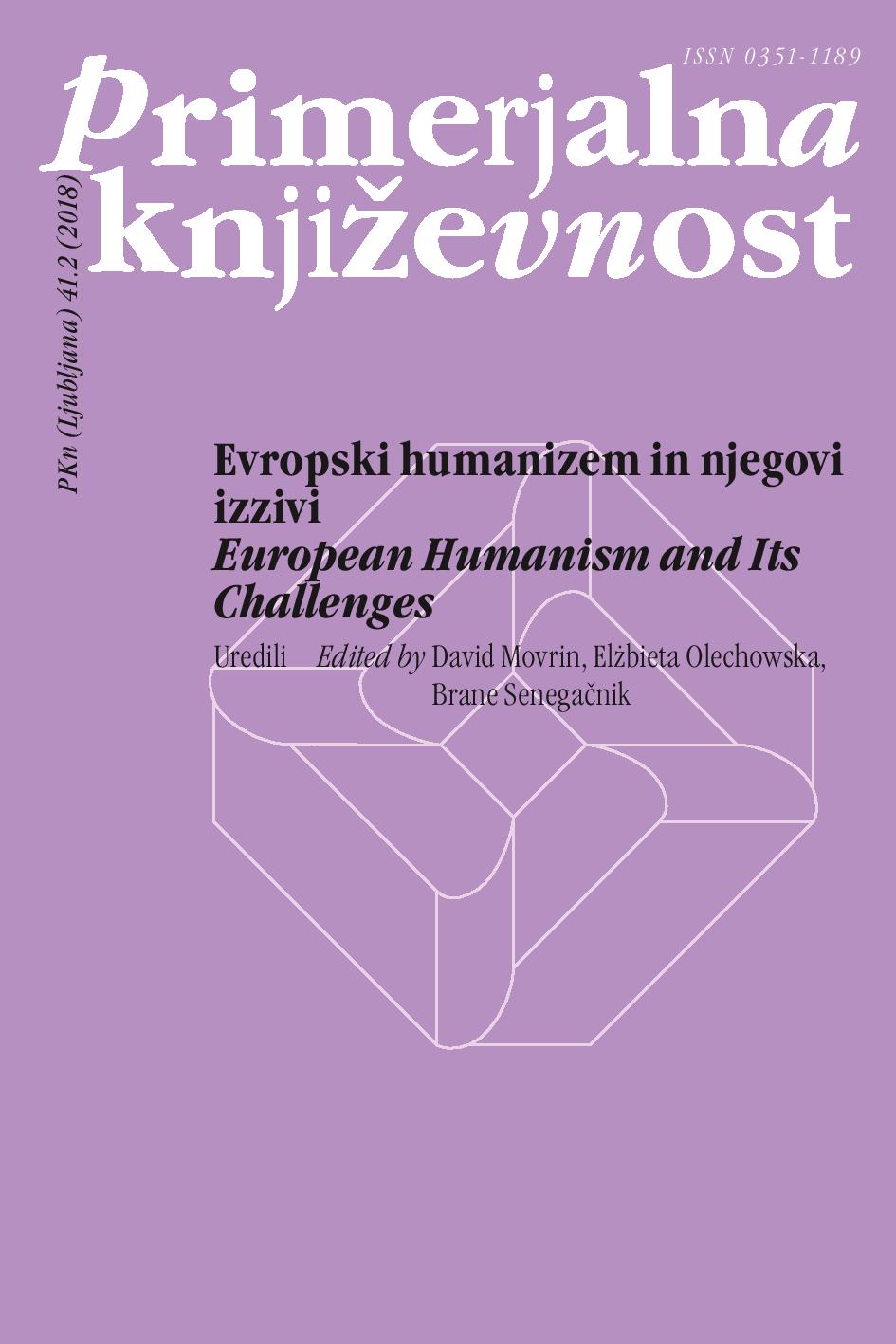Orpheus pro quolibet sapiente et eloquente: Side Paths in Medieval Interpretations of the Myth of the Humanization of Mankind
Keywords:
Medieval literature, ancient mythology, interpretation, Ovid, Orpheus, Eurydice, allegory, humanizationAbstract
The figure of Orpheus in sample medieval texts, in which the interpreters of the myth focused on two of its most widespread themes (Orpheus’ and Eurydice’s love story and the singer’s influence over Nature), is presented in the context of human cultural history and spiritual development. In all these interpretations, the singer-poet is undoubtedly regarded as bearer or even founder of culture and civilization. Moreover, his association with Christ had given him distinct messianic characteristics. However, the relations of the Orpheus Myth to Dionysian rites, as well as to the cult of Apollo, have given an ambivalent character to the mythical hero, which had already puzzled ancient mythographers and interpreters. The conflict concerning his role of the bearer of civilization continues to reappear with later authors, particularly in the interpretations regarding the Orpheus-Eurydice relationship, the allegorical meaning of both figures and the dubious success of the poet’s descent into the underworld.References
Atkinson, J. Keith. »Medieval French and Latin Interpretations of Boetius’ Consolatio Philosophiae, Book III, Metre xii, vv. 49–51«. L’offrande du cœur: Medieval and Early Modern Studies in Honour of Glynnis Cropp. Ur. Margaret Burrell in Judith Grant. Christchurch: Canterbury University Press, 2004: 61–72.
Bernabé, Alberto, ur. PEG II: Orphicorum et Orphicis similium testimonia et fragmenta. München: K.G. Saur, 2005.
Boynton, Susan. »The Sources and Significance of the Orpheus Myth in ‘Musica Enchiriadis’ and Regino of Prüm’s ‘Epistola de harmonica institutione’«. Early Music History 18 (1999): 47–74.
Bremmer, Jan. »Orpheus: From Guru to Gay«. Orphisme et Orphée : en l’honneur de Jean Rudhardt. Ur. Philippe Borgeaud. Ženeva: Librairie Droz S.A., 1991: 13–30.
Brown, Malcolm Kenneth, prev. The Narratives of Konon. München: K.G. Saur, 2002.
Cedilnik, Alenka. »Izobrazba kot pot do najvišjih moralnih vrednot: Plutarhov pogled na vzgojo in izobraževanje«. Keria: Studia Latina et Graeca 19.2 (2017): 19–38.
Delgado, Ramito Gonzáles: »Interpretaciones alegóricas del mito de Orfeo y Eurídice por Fulgencio y Boecio y su pervivencia en la Patrologia Latina«. Faventia 25.2 (2003): 7–35.
Friedman, John Block. Orpheus in the Middle Ages. Syracuse, NY: Syracuse University Press, 1970.
Ghisalberti, Fausto. »Arnolfo d’Orleans, un cultore di Ovidio nel secolo XII«. Memorie dell Istituto Lombardo di Scienze e Lettere 24 (1932): 157–234.
– – –. Integumenta Ovidii: poemetto inedito del secolo XIII. Milano: Principato, 1933.
– – –. »Giovanni del Virgilio espositore delle Metamorfosi«. Giornale dantesco 34 (1933): 1–110.
Graf, Fritz. »Orpheus: A Poet Among Men«. Interpretations of Greek Mythology. Ur. Jan Bremmer. London: Routledge, 1990: 80–106.
Hatinguais, Jacqueline. »En marge d’un poème de Boèce : l’interprétation allégorique du mythe d’Orphée par Guillaume de Conches«. Association Guillaume Budé : Congrès de Tours et de Poitiers, actes du Congrès. Pariz: Société d’édition Les Belle Lettres, 1954: 285–289.
Irwin, Eleanor. »The Songs of Orpheus and the New Song of Christ«. Orpheus: The Metamorphoses of a Myth. Ur. John Warden. Toronto: University of Toronto Press, 1982: 51–62.
Jaeger, C. Stephen. »Orpheus in the Eleventh Century«. Mittellateinisches Jahrbuch 27 (1992): 141–168.
Lee, M. Owen. Virgil as Orpheus: A Study of the Georgics. New York: SUNY, 1996.
LIMC = Lexicon Iconographicum Mythologiae Classicae. Zürich: Artemis, 1981–1997.
Lutz, Cora Elisabeth, ur. Iohannis Scotti Annotationes in Marcianum. Cambridge, MA: Medieval Academy of America, 1939.
– – –. Remigii Autissiodorensis Commentum in Martianum Capellam Libri III–IX. Leiden: Brill, 1965.
Nauta, Lodi, ur. Gvillelmi de Conchis Glossae super Boetium. Corpus Christianorum, Continuatio medievalis 158. Turnhout: Brepols, 1999.
Reynolds, William Donald. The Ovidius Moralizatus of Petrus Berchorius: An Introduction and Translation. Urbana: Illinois, 1971 (doktorska disertacija).
Robbins, Emmet. »Famous Orpheus«. Orpheus: The Metamorphoses of a Myth. Ur. John Warden. Toronto: University of Toronto Press, 1982: 3–23.
Schmid, Hans, ur. Musica et scolica enchiriadis una cum aliquibus tractatulis adiunctis. Bayerische Akademie der Wissenschaften, Veröffentlichungen der Musikhistorischen Kommission, Band 3. München: C. H. Beck, 1981.
Segal, Charles. Orpheus. The Myth of the Poet. Baltimore: Johns Hopkins University Press, 1989.
Pepin, Ronald E., ur. The Vatican Mythographers. New York: Fordham University Press, 2008.
Vieillefon, Laurence. La figure d’Orphée dans l’antiquité tardive. Pariz: De Boccard, 2003.
Vicari, Patricia. »Orpheus among the Christians«. Orpheus: The Metamorphoses of a Myth. Ur. John Warden. Toronto: University of Toronto Press, 1982: 63–83.
Ziegler, Konrat. »Orpheus«. RE 18 (1939): 1200–1316.


